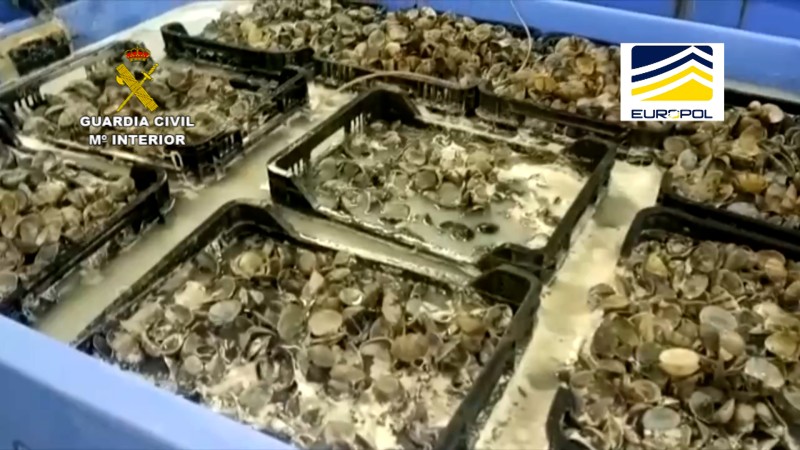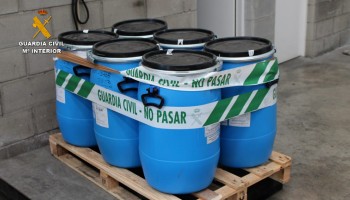Some 16 tons of the tasty invertebrates were caught being shipped into Spain, and 9 individuals were arrested.
“The mollusks, mostly from Portugal and captured in restricted or prohibited areas by illegal shellfish [mongers], were introduced into Spain through the use of falsified capture and transport documents,” the Civil Guard explained.
According to the Civil Guard, the mollusks were often sold without proper sanitary measures, raising the possibility that some are unfit for human consumption.
It’s not the first time Spanish authorities have come up against illegal, unlicensed and unregulated (IUU) fishing operations. In 2018, 79 people were arrested for dealing in unlicensed tuna.
Such illegal fishing is a massive global criminal industry, accounting for some 20 percent of the world’s catch, according to Interpol.
As evidenced in Spain, the illicit ramifications of IUU fishing are not confined to the high-seas either.
“Money laundering, labour exploitation, corruption and forgery are a small sample of serious crimes commonly committed during IUU fishing today,” Interpol said in a 2020 report.
“Fishing vessels are often also used to smuggle people, drugs and firearms, as well as to carry out piracy or terrorist attacks.”
The report further noted that on shore, participants “conspire with accountants to launder money, nurture corrupt relationships with government officials, falsify regulatory documents, and consistently resort to forced labour on their ships.”






